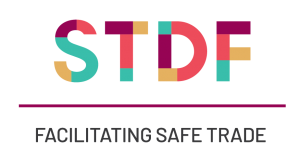Официальная обратная связь диалога для Саммита ООН по продовольственным системам 2021 года
Виды диалогов
Организатор
Язык диалога
Дата/время
Окончание
Местоположение
Формат
Просьба ознакомиться с приводимыми ниже данными для получения регистрационной информации, если таковая имеется, или обратитесь к руководителю диалога, если желаете принять участие.
Описание
Key Questions
- Who is involved in facilitating safe trade, and how can we strengthen trust and synergies across stakeholders and sectors to support agri-food systems transformation?
- What are the trade-offs in facilitating safe trade, why are they relevant, and how can they be better navigated to support agri-food systems transformation?
- How can STDF’s global partnership influence and catalyse change that supports agri-food systems to deliver for the world of tomorrow?
Why does facilitating safe trade matter for food systems transformation?
Transforming agri-food systems to deliver food security is urgent for the future. Around the world, diverse stakeholders recognize the need for change to catalyse sustainable economic development, benefit women, youth and other vulnerable groups, and promote the health of the planet. Facilitating safe trade must play a crucial role in this change.
Trade helps to create jobs, improve incomes, attract investment and boost economic growth. Meeting international standards for food safety, animal and plant health is essential to facilitate safe trade. Safe trade enables developing countries to participate in and benefit from export-oriented agri-food value chains that generate employment and promote sustainable economic development. Safe trade protects the health of consumers, animals and plants, while helping to mitigate and adapt to the risks posed by climate change, promoting sustainable development.
The STDF’s global partnership of public and private sector actors from across agriculture, health, trade and development is working to facilitate safe trade that supports sustainable economic growth, poverty reduction and food security in developing countries and contributes to the Sustainable Development Goals.
International standards for food safety, animal and plant health are at the core of STDF’s work to facilitate safe and inclusive trade horizons for developing countries, building on STDF’s Strategy for 2020-2024 «Safe and Inclusive Trade Horizons for Development Countries». Meeting these standards results in effective national food control, veterinary and phytosanitary systems, which facilitate safe trade, in line with the WTO’s Agreement on the Application of Sanitary and Phytosanitary Measures. Meeting these standards also promotes agricultural development, protects the environment and helps to mitigate against the risks of climate change.
Like agri-food systems, effective SPS systems depend on inter-disciplinary, cross-sectoral and inclusive multi-stakeholder processes and approaches that cut across agriculture, health, environment, trade and development to enable diverse stakeholders to achieve more and stronger results together than would be possible alone.
The STDF Dialogue will engage members of STDF’s global partnership to:
- Share experiences and learning about innovative and collaborative safe trade solutions in Africa, Asia and the Pacific and Latin America and the Caribbean, and explore how they are contributing to food systems transformation.
- Reflect on how ongoing trends – from the growth in regional and South-South trade to digitalization and inclusive and sustainable trade – are influencing SPS capacity development, and what this means for food systems transformation.
- Identify new opportunities for STDF’s global partnership to influence and catalyse sustainable improvements in SPS systems that support agri-food systems to deliver for the world of tomorrow.


